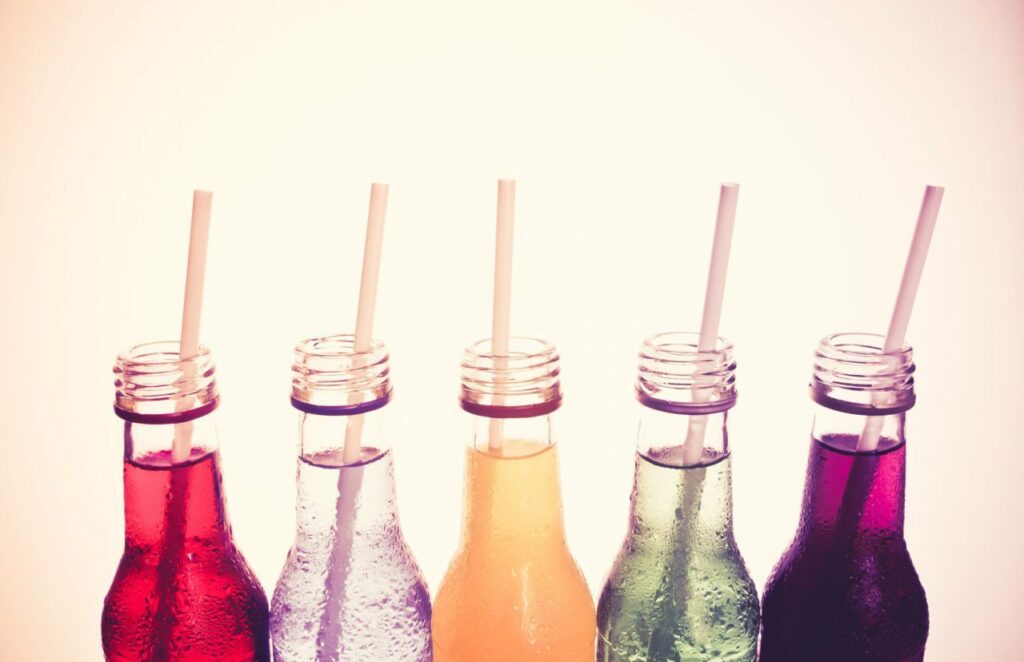Does Drinking Diet Soda Threaten Your Health?

Approximately one in five Americans drink diet soda on a daily basis, according to the Centers for Disease Control and Prevention. At our Littleton family dentistry, we wonder if that’s a good habit for so many people to indulge in?
A number of recent studies have found links between diet soda consumption and a number of chronic health problems that include heart disease, diabetes, weight gain, and other general health issues. Most recently, a study found links between diet soda and an increased risk of stroke and dementia.
Diet soda also creates havoc on the health of your teeth, as the artificial sweeteners added to diet sodas erode tooth enamel and increase the risk of tooth decay and gum disease.
All told, drinking diet soda offers a number of potential health risks, but experts say you don’t need to clean out your refrigerator quite yet. Many questions still need answering before health experts know for sure that drinking diet soda really poses a threat to your long-term health.
Diet Soda’s Link to Stroke & Dementia
In a study conducted at Boston University and published in the journal Stroke, researchers examined 10 years of health information collected on nearly 3,000 American adults over the age of 45 to determine the number who had suffered a stroke. The researchers performed the same analysis on nearly 1,500 American adults over the age of 60 to determine how many developed dementia.
After accounting for a variety of known risk factors that could impact the participants’ health – such as weight, level of physical activity, and age – researchers discovered that diet soda drinkers increased their risk of dementia and stroke by three times, when compared with those who did not drink diet soda at all.
While that number seems remarkably high, it might not be as terrifying as it seems at first glance. Of the nearly 4,500 people examined, only 81 – or just 5 percent – were actually diagnosed with dementia, and only 97 – just 3 percent – suffered a stroke.
So while a correlation does seem to exist, researchers caution that overall only a small number of people were affected.
Researchers also make clear that the results of the study do not explain the link. Does drinking diet soda cause health problems like stroke and diabetes to develop? Or do people who have a higher risk for these types of health problems choose to drink diet soda, perhaps in an effort to reduce calorie and sugar intake? Researchers can’t say for sure.
Links Found, but Cause and Effect Not Yet Established
Additional studies have also found links between drinking diet soda and health risks. But no clear causation could be determined to prove that soda – not a specific type of artificial sweetener – was to blame in any of these previous studies either.
- In 2014, a study found that obese and overweight individual who drank diet sodas consumed between 90 to 200 more calories a day when compared to those who drank regular soda.
- Additionally, in 2014, a review of a number of studies found that individuals who drink diet sodas increased their risk of developing type 2 diabetes by 13 percent for each can of 12-oz soda they consumed a day.
- A 2015 academic review of studies published in the journal BMJ also found that a single diet soda a day increased an individual’s risk of diabetes by 8 percent.
- A 2012 study found that daily diet soda drinkers – who were on average 69 years old – increased their risk of stroke, heart attack, or death as a result of blood vessel issues by 43 percent.
- Finally, a 2014 study of 381 adults without diabetes found that drinking diet soda had many known risk factors for developing type 2 diabetes, including belly fat and increased weight, high blood sugar levels, and increased glucose resistance. The study suggested a cause – Artificial sweeteners affected stomach bacteria, which in turn impacted the body’s metabolism. However, that connection was only found in mice.
The researchers involved in these studies offered many explanations for the connection between health problems and diet soda consumption. In addition to potentially altering stomach bacteria, consuming artificial sweeteners may increase appetite, which could cause overeating. However, researchers have yet to find evidence confirming these or other theories behind this connection.
Soda & Your Oral Health
While the impact of soda consumption on the body continues to be studied, the impact it has on your oral health is perfectly clear. Individuals that consume one or more sodas a day – diet or regular – have higher rates of tooth decay, gum disease, and tooth loss when compared to those who don’t drink soda.
At our Littleton family dentistry, we encourage all of our patients to practice moderation when it comes to drinking soda and other artificially sweetened beverages. A balanced diet high in natural fruits, vegetables, and whole grains offers far more health benefits than a diet high in sugar and fat. While giving up soda entirely may be a difficult proposition for some, drinking less soda a day will offer a number of benefits that will easily make your sacrifice worthwhile
